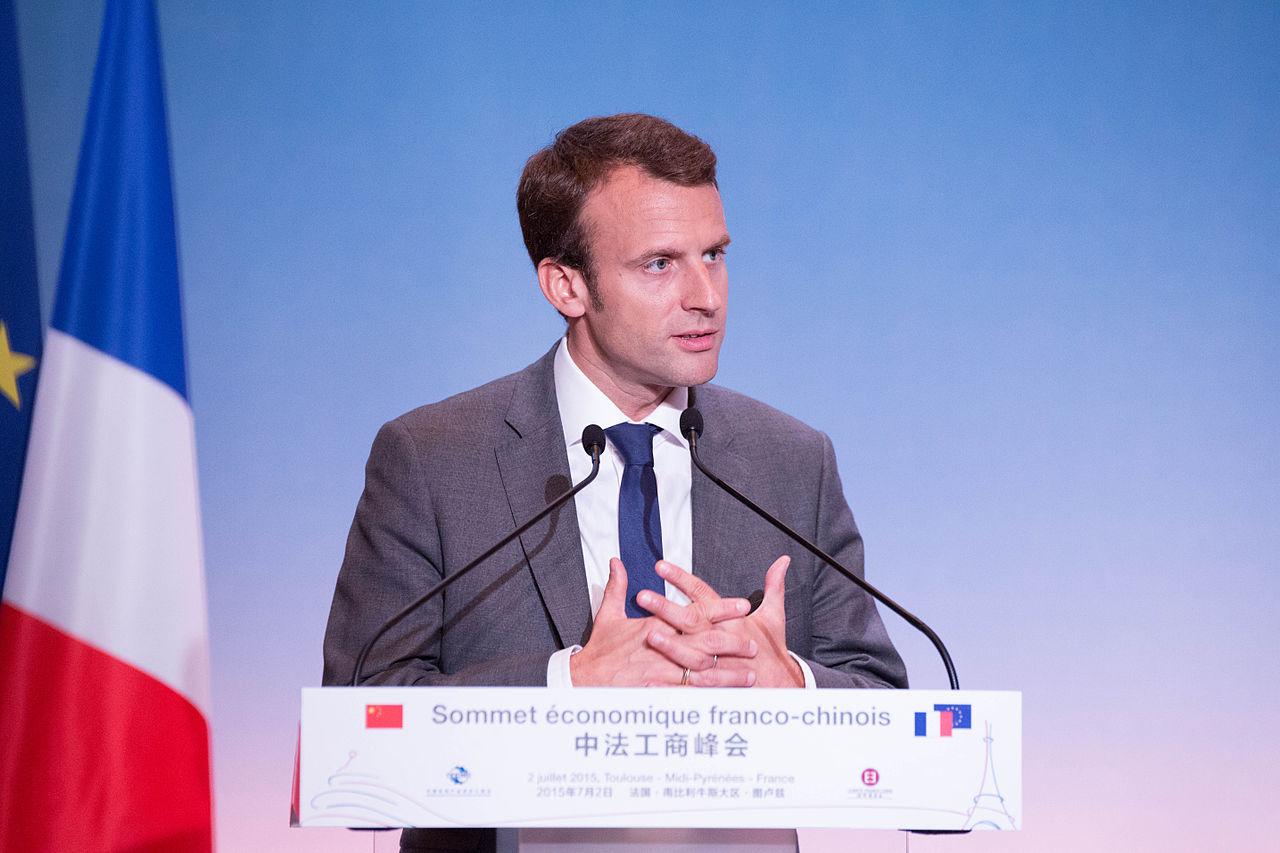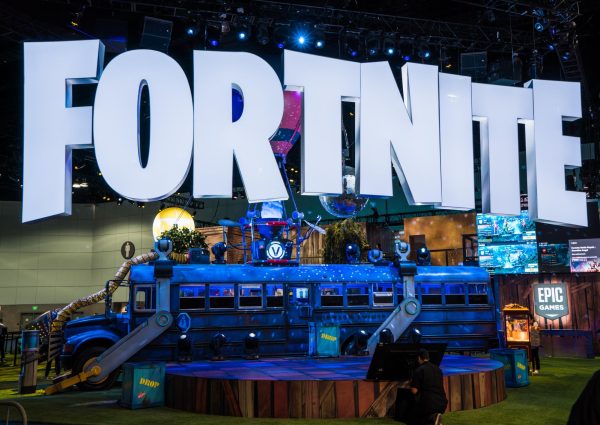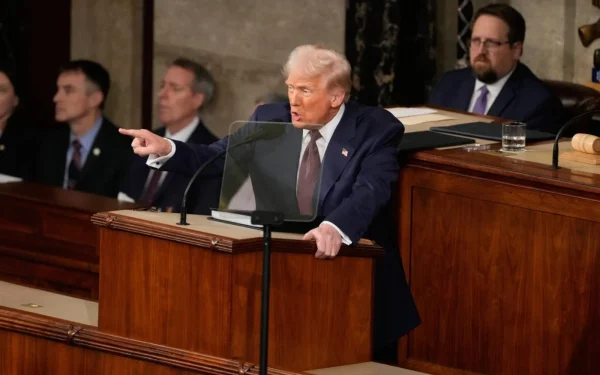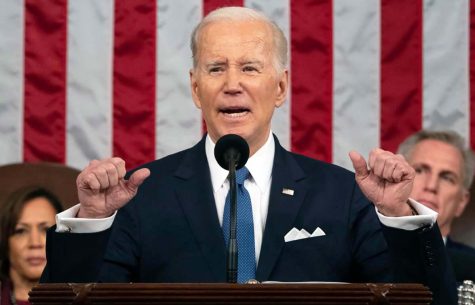Macron takes charge of France’s future
Google image/Creative Commons license
New French president Emmanuel Macron faces tough tests at home and abroad.
With France’s tense presidential election over, the country’s youngest leader since Napoleon Bonaparte, Emmanuel Macron, has stepped up to face a divided and angry population at home and an increasingly tense diplomatic relationship with President Donald Trump.
Mr. Macron, in a vote seen as a referendum on the future of Europe, beat his opponent Marine Le Pen of the National Front by a margin of 66 percent to 34 percent.
Though this seems like a solid or even impressive win, the actual situation is a lot more complicated than that. As a matter of fact, a record number of ballots–one third–was left blank.
“It says that there is a real desire for a new direction in politics, and there is tremendous anger and resentment and frustration with politics as it is, and there’s a great need for something different,” said Dr. Anders Lewis, AMSA’s first-year executive director and long-time AP US History teacher.
So if Mr. Macron was by no means backed by an overwhelming majority of the French population and faces a divided electorate, why was he elected? Why not Ms. Le Pen?
It was, in essence, France’s anti-Trump vote. Ms. Le Pen and her campaign goals and promises were incredibly reminiscent of President Trump’s campaign last year.
Mr. Trump won the election in the United States, giving the rest of the world a chance to observe and make judgments based on his levels of success as a president.
Despite his assertions, Mr. Trump’s first four months have not been viewed by most critics as incredibly successful; indeed, they have been laced with backlash and disappointment.
“The problems that he campaigned against continue to grow, so if [the French] opt for Le Pen, is that really going to be helpful to [them]?” Dr. Lewis said.
Although a kind of “guilt by association” helped Mr. Macron and hurt Ms. Le Pen, the history of the National Front Party certainly didn’t help the latter in her campaign.
Throughout its many years of existence, and especially during the time when it was headed by Ms. Le Pen’s father, Jean-Marie Le Pen, the National Front has been accused of racism and anti-Semitism.

The relationship between President Donald Trump and French president Emmanuel Macron has already grown tense.
Mr. Le Pen once said that the Nazi gas chambers were a “detail of history,” which did little to improve the party’s image with the public.
But what’s done is done. Mr. Macron triumphed and the world now looks forward to the future.
The new French president faces immense challenges in many forms, among them immigration, economic unrest, and public frustration.
As an ardent pro-European, Mr. Macron believes that the EU is a “guarantee of peace” and cannot be abandoned, but must be reformed.
He intends to strengthen its external boundaries by adding an additional 5,000 guards to patrol the borders. He also maintains the position that those not admitted into the EU should no longer be allowed to linger on borders.
He is open to immigration, however, and in fact wants to create integration programs to help foreigners acclimate to the French language and culture.
Among his economic campaign ideas, Mr. Macron advocated for “government” in the Euro zone, proposing a council or even a parliament to regulate a “common budget.”
But promises aren’t actions. It is what Mr. Macron does next that will determine his worth as a president. The French people will be scrutinizing and criticizing him the whole way, and if people continue to feel alienated from their political leaders, extreme measures from forceful leaders might not seem so extreme anymore.
This desperate desire for something new and more personal leaves very little room for mistakes on Mr. Macron’s part. If anything goes wrong during his term, he will immediately be blamed, and France might find itself once again in need of something new and more effective.
“If there is another large-scale attack by ISIS, that plays to Le Pen,” Dr. Lewis said. “If the high unemployment rate in France continues, inequality continues to grow, that plays to people like Le Pen.”
To make effective change, Mr. Macron faces the monumental task of unifying the French people nationally and with the EU as a whole. But he cannot do that unless he solves some problems first.
“[Mr. Macron] is not a Winston Churchill; he’s not a Charles de Gaulle,” Dr. Lewis said.
His public speaking skills are nothing extraordinary, and his ability to motivate is questionable. Young and inexperienced–he is only 39–he is faced with issues of tremendous consequence, and much of EU’s fate rests largely on his shoulders.
Despite the pressure, Mr. Macron appears to have held his own in his first few weeks as president. During Mr. Trump’s visit to France, Mr. Macron greeted him with a very firm, purposeful handshake that left the American president white-knuckled and trying to withdraw his hand.
In what Mr. Macron himself described as a “moment of truth,” the purpose of the handshake was to show Mr. Trump that France will firmly hold its own and will certainly not be pushed around.
It was definitely effective. Mr. Macron conveyed the appearance of cool dignity and relaxed confidence, showing that he can’t be bullied because of his youth and inexperience.
The French president has also formed a good rapport with other world leaders, among them Canadian Prime Minister Justin Trudeau, German Chancellor Angela Merkel, and British Prime Minister Theresa May, to whom he expressed his condolences over the recent Manchester terrorist attack.
His meeting with Russian President Vladimir Putin at Versailles was also very cordial.
It has been a productive first few weeks, but things are just beginning. It was French writer Alexandre Dumas who put it best more than a century ago, saying that all the French people have left to do is “wait and hope.”

Kate is a junior. She loves writing and has done lots of it, especially short stories
and poetry in both Russian and English. She looks up to many...







